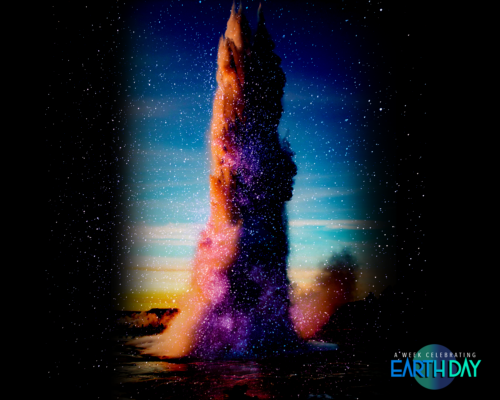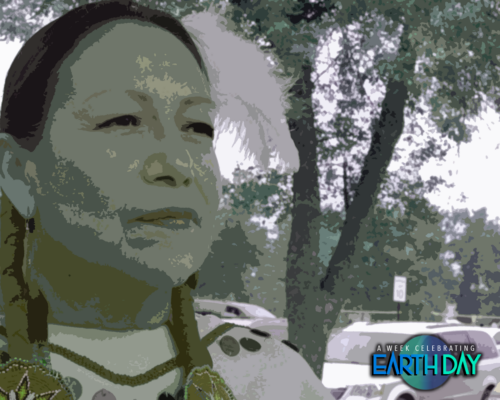Lee:
So Fern tell us about yourself and the work you’re doing.
Fern:
My name is Fern Cloud. I am a member of the Sisseton-Wahpeton Dakota Tribe on the Lake Traverse Reservation located in northeastern South Dakota. And I was called to a ministry in 2004 with the Presbyterian church here at Granite Falls, Minnesota. It’s on the Upper Sioux Dakota reservation near Granite Falls, Minnesota. Over the years, I’ve also been a member of the Native American Consulting Committee. And I’ve been re-upped another two years as moderator of the Native American Consulting Committee. In 2016, I helped write an overture that responded to the Doctrine of Discovery. So in that response to the overture the General Assembly wanted to form the committee. I’ve also been the commissioner to the Synod of Lakes and Prairies for two terms. And during those terms, I was a moderator for the Senate of Lakes and Prairies. So, I have a long journey of being involved on all levels within the PCUSA. I’m very active in Presbyterian Women and I do a lot of workshops for them. In my private life I am very much an activist for Native American concerns whether they’re domestic violence, sexual assault ‑ most recently missing and murdered indigenous women.
I’m also very active in environmental issues. I was on the ground at Standing Rock which was a true experience of how racial justice in the environmental arena really opened up for me and I’ve got to see it firsthand with my own tribe and my own nation. But it hasn’t stopped, it continues on even today and all the politics that go in with it. And as a native person, we have so many relationships with the federal government, the state and tribal and all these regulations. But ultimately, it falls with the federal government and my work with the doctrine of discovery as I try to tie people into why the doctrine of discovery should be repudiated because it endangers, and it hinders in a big way our concern for the environment.
Recently, we’ve been really impacted not just because of the COVID-19 but within that the Wampanoag tribe got their tribal rights taken away. This is very concerning for us because it could happen to any one of the 554 federally recognized tribes. It could happen any day. And it’s simple as that because it goes back to the doctrine of discovery and the wording in there that we are just occupants, or we don’t have any legal right. It’s always a struggle and we’re concerned. Now there is the overture on missing and murdered indigenous women that will be coming to General Assembly.
We are very concerned because within all of this the government has signed an order giving Keystone XL the authority to start preparing the pipeline – the corridor of the pipeline. That means preparing the land for installing that. And so, we went up to in October to Montana because one of our tribal churches is in Montana in our Presbytery. So, we went up there to Fort Peck. And on that journey up there, I began to see how the landscape just changed. What was just a little single road now is double lane highways, travel centers and man camps everywhere.
And that was very concerning for us because we know a majority of our young people go missing and it’s due to those man camps. It’s very concerning for us. Another disturbing fact that the tribes are concerned with is that we don’t know if they screen these workers that come in and or if they are infected with the COVID-19 virus. And they’re many concerns that I think that the general public aren’t aware of.
Lee:
And these issues are so connected. The environment and COVID-19 and then indigenous rights and issues just outside of our door and our driveway. I noticed yesterday that there was a mask floating in the air and it landed in our driveway. And had that realization that this is the new litter, this is the new pollution. And the gloves and the waste and just how it’s connected to the virus. And it sounds like in your perspective it is all just so connected right now.
Fern:
It is. It always is. It’s a struggle for us. Not only are we called to ministry, but we’re called to the concerns of our people and those concerns aren’t just spiritual but we’re beginning to see how it’s affecting our spirituality . It’s always concerning, and we see a lot of the racial injustice, the racism in all of this and take Standing Rock for instance and the Dakota access pipeline when it was first in the planning stages.
The investors went to Bismarck and told them we’re going to come through Bismarck with the pipeline here. And of course, the citizens of Bismarck said no. What if it breaks or when it breaks is it going to endanger our water system? So, they said well we’ll go put it down on Standing Rock. That was racism alongside the environment, and we must bring it to the attention of everyone.
And there’s a lot of issues with our treaties a lot of people don’t understand. And those we hold to because they are like contracts and we take them seriously – it’s a contract. You just can’t not live up to your commitment to that contract. Nobody can. And we know that the government has said it decides the supreme law of the land, so we get all these mixed messages and we see the hypocrisy in their dealings with native people. And as a minister of the gospel, I think this is a part of the work that we do because it’s a total injustice and we know that God is a just God. And we know that the discrepancies with the government are discrepancies not only with their laws but also with their faith. They say it’s okay for the dominant culture but when it comes to native people, it’s like we’re not going to honor any of the laws.
Lee:
And, as you stated, you’re even seeing it now as COVID-19 is going on – that hypocrisy is still working within that too.
Fern:
Yeah. We government because of our sovereignty. We have a government to government relationship with the US and it just depends on who is in that administration what our lives are going to look like. Sometimes there’s a good administration and we get things done and sometimes, like now, it’s been a long, long journey. It has not been good.
Lee:
I’m glad you touched on that because I wonder how environmental issues and also with COVID-19, how you’ve experienced that and how you’ve seen that. And in your people. And I hope that in this when people read this, that we can also teach people something to move forward in this conversation. What we can do, what we can learn, how we can better equip ourselves for the future because none of these issues are going to go away until action is taken. And so, I would love to hear your thoughts about what to offer our readers.
Fern:
We need support. As the moderator of Native American Consulting Committee and an activist, when I came into more visible leadership within the PCUSA, I believe that God really wants me to be a voice for the people and the people’s concerns. And the Native American Consulting Committee has been very supportive of overtures that have come to the church and trying to educate the church why we need their support.
Because it all ties together as you mentioned. And as you can see, the missing and murdered indigenous women overture goes hand in hand with the environmental issues that we’re trying to fight against and how the doctrine of discovery is also part of all these environmental issues. They’re not standalone. We need to be supporting one another in our journey to protect our people whether it’s environmentally or socially or spiritually. There’s a lot of concerns that we’re asking are as part of the body of Christ, as part of the PCUSA to stand with us or even try to understand the multifaceted life that we live as native people and not just judge us on stereotypes of what they heard.
I’m always trying to build relationships with whoever comes into my path to educate them on our struggles. We’re not asking you to fight for us. We’re asking you to support us in our community. We need allies. And, in some ways, it’s been wonderful. I’ve got gotten some good responses from the Presbyterian Women and with the overtures.
(This interview is a 2 part series. The next part will be published soon.)
Interview conducted by Lee Catoe, Managing Editor of Unbound.






Unbound Social